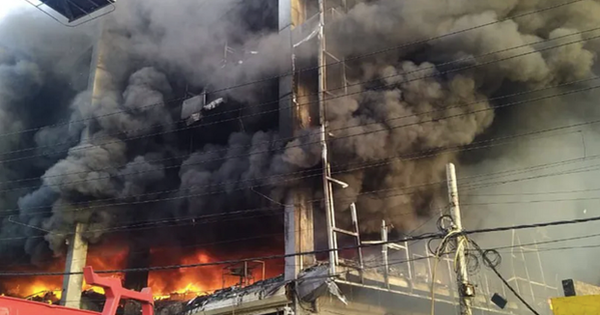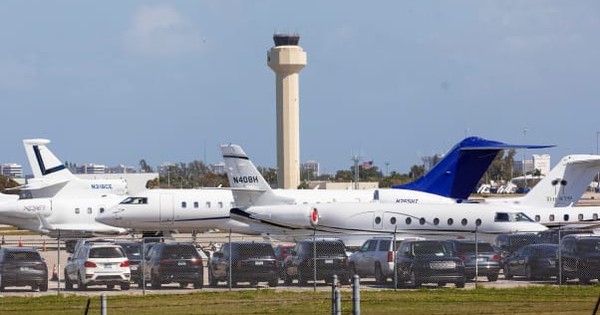The European economy is stuck in a difficult position
The euro area economy grew slightly in the first quarter of the year but is facing the risk of recession due to the Ukraine crisis.
The European Union’s statistics agency (Eurostat) on April 29 said that the GDP of the 19 eurozone countries in the first quarter increased by more than 0.2% compared to the fourth quarter of 2021 and 0.8% over the same period. last year. This is a positive signal in the context that the US economy in the first quarter then fell by 1.4%.
Consumer price data for April released by Eurostat also recorded an increase in inflation to 7.5%, from 7.4% in March. Energy prices fell 3.7% on the month, but Still 38% higher than a year earlier.
At the beginning of the year, as Covid-19 restrictions eased, the European economy was forecast to recover strongly this year. However, the Ukraine crisis that broke out in February dashed those hopes. Economists say the slowdown in growth, caused by rising energy costs, could turn into an economic downturn if gas and oil supplies from Russia are disrupted.
Despite the positive first-quarter numbers, “we think eurozone GDP is likely to decline in the second quarter due to the impact of the Ukraine war and rising energy prices,” said analysts at Capital Economics. high levels affect real household incomes and consumer confidence, as well as exacerbate supply-side problems.
Soaring energy costs are Europe’s biggest challenge. “The sharp increase in energy prices is reducing demand and increasing production costs,” said Luis de Guindos, Vice President of the European Central Bank (ECB). Along with that, the new disruption in the supply of finished products and parts from China also creates many problems for businesses.
According to him, the war in Ukraine is weighing heavily on business and consumer confidence, creating new bottlenecks. “These developments suggest slower growth in the coming period,” he forecast.

A corner of La Defense district, Paris, France. Photo: Reuters
In response to a surge in inflation in recent months, the ECB said it could end its bond-buying program in three months through September, paving the way for its first rate hike since 2011. .
Surveys of European activity in the weeks that Russia sent troops into Ukraine suggest the region’s economy is holding up better than some economists and policymakers feared. As the Ifo survey of German businesses recorded a recovery in confidence in April, after a decline in March. The EU survey of consumers recorded a partial recovery…
However, the longer the hostilities last and the high energy costs, the greater the risk of diminishing growth. The International Monetary Fund (IMF) earlier this month also lowered its growth forecast for the eurozone this year to 2.8%, from 3.9% previously.
Growth could be weaker in some of the region’s major economies, including France, Germany and Italy, the IMF said. “There is a risk that some of these countries could enter a mild technical recession,” said Alfred Kammer, head of the IMF in Europe.
A recession will become more likely if Russia decides to cut natural gas and oil sales to eurozone members like Germany, or if the EU imposes an embargo on energy imports from the country. .
Assuming sanctions stay in place and oil prices average around $100 a barrel this year, economists at JPMorgan estimate it will cost Europe nearly 600 billion euros ($634 billion) to import. energy exports for 2022, about 4% of eurozone GDP. While the pre-epidemic average is only about 2.5%.
In case of stopping energy imports from Russia, costs can increase by 2% to 3% of economic output. This will drastically reduce the financial capacity that households and businesses can spend on goods and services.
The sudden shutdown of Russian energy supplies could also lead to a decrease in the output of industries with few alternatives. “If the supply of natural gas from Russia is suddenly stopped, it will cause irreversible economic damage,” said Martin Brudermüller, CEO of German chemical group BASF SE.
Speaking to shareholders on April 29, Brudermüller said the company may have to stop production at the Ludwigshafen plant if Russian gas supplies are cut off. “In a word, there is no short-term solution to replace natural gas from Russia. We will use all options to reduce dependence on Russian gas as quickly as possible.” he said.
Alfred Stern, CEO of one of Europe’s largest energy companies OMV, said it was nearly impossible for the EU to find alternatives to Russian gas in the short term.
“We should be clear that in the short term it will be very difficult for Europe, if not impossible, to replace Russian gas flows. So this could be a medium to long term debate. In the immediate future, I think we need to focus and make sure that we keep gas for industries and households,” Stern said.
In its data release, Eurostat did not provide an analysis of economic activity for the first quarter. But member country agencies have provided some insight into what lies behind the modest growth in the first three months of the year.
In France and Spain, a large drop in consumer spending stifled growth in the first quarter, reflecting the impact of Covid-19 restrictions on access to services that require contact between people. people and people. In addition, there is pressure on household budgets due to increased energy bills. In both countries, however, investment spending and exports continued to rise.
While France’s economy stagnates and Spain’s slows, Germany’s economy has grown again after shrinking in the last quarter of last year. In contrast, Italy’s economy shrank in the first three months of the year, after growing in the last three months of the year.
Session An (according to WSJ, CNBC)
at Blogtuan.info – Source: vnexpress.net – Read the original article here



